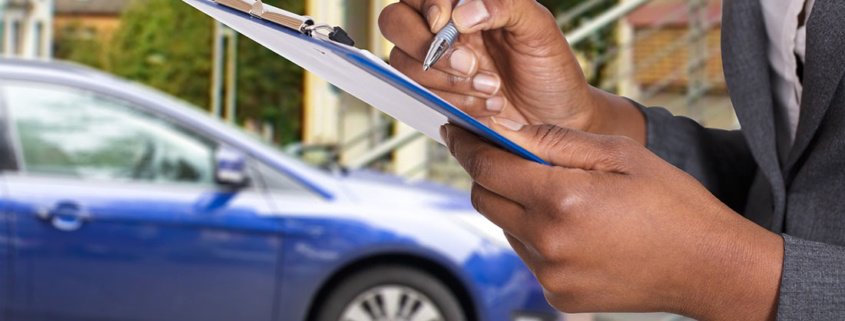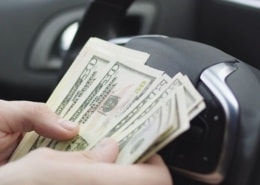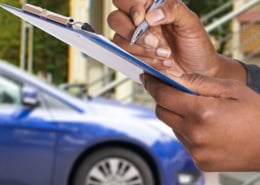The Ultimate Dealership Trade-in Guide for 2024
Expert Tips and Advice on Trading a Car at a Dealership in 2024
I highly recommend selling your trade-in privately than trading it in at a dealership. You will get more money selling it on your own. But if you must trade with a dealer, my dealership trade-in guide will help you navigate the process.
I understand that some people must trade in their vehicles because they don’t have the time or patience, and that’s okay. Two standard practices during the trade-in process are offering you wholesale prices or less and attempting to “hold money on your trade.” This means a dealer will initially provide less than your vehicle is worth during the negotiation process.
What is a Trade-in?
A trade-in vehicle is one that you provide to a dealership in return for credit against the purchase price of a new car. A trade-in can generally be any car that has an actual cash value. However, the amount for the trade-in can vary substantially.
How Does Trading a Car Work?
The appraisal or trade-in process is when you turn your keys to the dealership and let them value your vehicle.
The used car manager or appraiser will look at your car, inspect it, test drive it, check the current market for your vehicle and then put a wholesale value on it. They will then present the offer amount to you. At this time, you either accept it or not.
When trading a vehicle, you turn into the “Seller,” and the car dealer becomes the “Buyer.”
The appraisal or trade-in process is when car dealers have an opportunity to enhance their profit. If you are unfamiliar with this process, you can quickly become a victim.
If you would like to learn more detail, please read my step-by-step breakdown of how the dealership trade-in process works and what happens when the dealer presents you with the actual cash value of your trade.
If You Must Trade In Your Car at a Dealership
Understandably, most people don’t want to worry about strangers coming to their houses or having the time to sell their current car privately. These people prefer to get it over with by trading it in at the dealership they’re buying another car.
Trading your car at a dealership is a lot easier than trying to sell it privately. Some states will even give you a sales tax break by only making you pay sales tax on the “trade difference.”
If a dealer gives you a wholesale value of $8,000 for your vehicle and your state sales tax rate is 8.25%, you will save $660 in taxes. That’s a total of $8,660.
Remember, if you took the time to sell it for retail on your own, the retail price could be closer to $11,000 or more.
However, if you must trade your vehicle with a dealership, take the time to learn the correct way to trade in a car to guarantee you get the most money possible in your local area.
Pros and Cons of Trading in a Car at a Dealership
What I like about trading in a car (pros):
- Quick transaction – the dealer handles all of the necessary legalities and paperwork.
- No strangers – You don’t have to deal with strangers who appear to look and drive the vehicle.
- Money down – Increases the money you have towards the purchase of the car you’re buying.
- Make ready – The dealer does all the necessary maintenance to get your vehicle ready for sale.
- Lower price – The amount gained from trading your car will lower the purchase price of the vehicle you’re purchasing.
- Tax advantage – If you live in a state with a tax advantage, you may only have to pay taxes on the trade difference; saving you more money.
What I dislike about trading in a car (cons):
- Lower offer – You will never get as much money as you would if you sell your car privately. Your vehicle is only worth what the dealer is willing to give you, and there is little room for negotiation.
- Supply and demand – The rules of supply and demand apply to all transactions. If a dealer already has eight Toyota Camrys on their lot, they are unlikely to offer anything close to fair market value for another.
- Profit margin – The dealer must sell your trade-in to earn a profit. This implies they will only give you the wholesale price of hundreds, if not thousands, of dollars less than the retail market value.
- Trade-in scams – An unethical dealer may attempt a common scam such as the pay-off of your car scam or trade-in value scam on an unsuspecting car buyer.
What is Positive Equity and Negative Equity?
If you’re trading in an automobile on which you still owe money, you’re in one of two situations:
- Positive equity – You’re in excellent condition if your vehicle’s value exceeds your loan’s balance. This difference is positive equity is the equivalent of having money to purchase a new car.
- Negative equity – If the value of your car is less than the amount owed, you have negative equity, also known as being “upside-down” or “underwater” on your car loan. When trading in a vehicle with negative equity, you must pay the difference between the loan balance and the trade-in value. You can pay it in cash, with another loan, or by rolling what you owe into a new car loan, which most financial experts and I do not recommend.
See what your trade-in is worth to determine if you are in a positive or negative equity situation. Knowing your vehicle’s value before shopping for a car will help you choose the best route.
When Should I Tell the Dealer I Have a Trade?
The professional car salesperson will tailor their “fact-finding” questions into everyday conversation. These questions will be like, “How do you plan to pay for your new car?” “Are you putting any money down on the vehicle?” And, “Will you replace or add a vehicle with this purchase?”
Do not tell the dealer early in the car buying process you want to trade your car in. If a salesperson asks you if you’re trading in a vehicle, tell them “no” or “not at this time.”
You do not want to tell them you’re not trading early in the process to keep the dealer as honest as possible. You have the right to change your mind later in the process.
“After you agree to the selling price of the vehicle you are buying”
The time to bring up your trade is when you have agreed to the purchase price of the vehicle you would like to purchase. Doing this will lock down your agreed-upon price, and the dealer will not be able to manipulate that amount.
Suppose you tell a dealer about your trade-in too soon. They may use this information against you by attempting the trade-in value scam during the negotiation process by giving you a low purchase price on the car you want to buy and then make up the lost profit by holding on to your trade.
What You Should Not Say About Your Trade-in
Most car dealers will come right out and ask you what you want for your trade-in as soon as possible. The dealer is trying to find out if you’ve educated yourself on the value of your vehicle.
I don’t know how often I would hear, “I think my car is worth $XX, XXX.” My next question to the customer was, “where did you come up with that number?” Most customers would say, “I just think it’s worth that.”
Making a statement to a car salesperson puts you at a considerable disadvantage. You just let the dealer know you haven’t done your homework, and they’ll most likely hit you with a meager value for your trade-in.
What if You’re Asked How Much You Want for Your Trade?
As stated above, a dealer will ask early in the sales process if you’re trading a car. As harmless as this question sounds, it’s a big part of the salesperson’s agenda. The dealer will use this information against you later during the negotiating stage. They will also ask you how much you want for your trade.
When you decide to bring up your trade, this is what you should say if the salesperson or manager asks you how much you want for your trade-in:
“I have no idea. You tell me what it’s worth.”
A dealer does not like the above answer and will most likely keep trying to get a number out of you on what you think your car is worth.
Hold your ground and act oblivious to how much your car’s worth.
Whatever you do, please don’t give them a figure; make them give you a figure first.
How to Estimate The Value of Your Trade
The last thing you want to do is let a dealer tell you how much your trade is worth without doing some research yourself. I guarantee they will attempt to “steal” your vehicle from you by offering you much less than what it’s worth.
How to avoid a dealer lowballing you is by determining an estimated value of your trade before contacting a car dealership. Doing this will keep the dealer from having the opportunity to take advantage of you when negotiating the value of your trade vehicle.
A vehicle appraisal is just one person’s opinion
If you tell ten used car managers to appraise the same car, you will get ten different values of what they believe the vehicle is truly worth.
I know I will hurt some readers’ feelings out there, but SENTIMENTAL VALUE does not add to the actual value of your trade. What a vehicle is worth; is what it’s worth. Even though it’s your first car or you’ve never had any problems with it, it will only be worth so much money.
So how do you find out the value of your trade? It’s not an exact science. However, there are some steps you can take on how to estimate your trade’s worth.
How to Get the Most Money for Your Trade
When you trade your car to a dealership, you’re selling your car to the dealer. Your goal is to get as much money as possible for your trade-in.
As a dealer myself, I’ve appraised thousands of vehicles. I can tell you I’d personally deduct money if the car I was appraising were filthy dirty, or full of trash.
Why would you make me get in and drive your nasty car around the block? I wouldn’t even want to sit in it! I promise other dealers out there feel the same way and will deduct money from the value.
On the other hand, when I appraised a clean car that looked and drove like someone took care of it. I would be more inclined to value the vehicle higher than if it was filthy.
I’ve put together a list of some convenient tips to increase the value of your trade-in with little or no cost. These little tips will increase your chances of getting more money from a used car appraiser when he looks at your car.
How to Sell an Old Junk Car Online
A dealer may tell you they are giving you an unbelievable amount for an old junk car, but I promise they’ll attempt to make it up somewhere else during the car sale.
If you have a car that doesn’t run or it doesn’t have much value. You may want to look into an alternative other than trading it in with a car dealership.
There are many other ways to make money by learning how to sell an old junk car online and turning that old car into quick cash you can use to buy a new car.
Trade-in FAQs
Can I trade in a new car I just bought?
You can, but you will most likely lose money. It is best to avoid trading in your car when you just bought it. A new car starts to lose value as soon as you drive it off the lot, and it can lose up to 20% of that value in the first year. If you recently bought a new, not used car and are considering trading it in, I recommend holding off or selling it privately.
What affects trade-in value?
Dealerships will consider any vehicle with value accepted as a trade-in, but the compensation can differ significantly. The condition of the car, mileage, demand for that specific make and model, and your negotiating skills all play a part in determining the trade-in value.
What should you not do when trading a car?
- Not having a good idea of what your trade-in is worth
- Overestimating the value of your trade.
- Not cleaning your vehicle
- Telling the dealership, you plan to trade your car too early
- Not receiving more than one trade-in offer
What is considered too many miles for a used car?
There isn’t a set amount of excessive miles for a used car. But you can take 200,000 as the upper limit, the point at which even modern cars start to break down due to years of use.
Why is trade-in value normally low?
Dealers appraise used cars using wholesale values. Another reason trade-in values are lower than retail pricing is because most trade-ins require reconditioning. A dealer will not usually sell a car right away after receiving it in trade from a customer. Instead, they spend time and money preparing the vehicle for its future owner.








